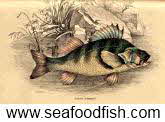ENGLISH SAUCE FOR SALAD, COLD MEAT, OR COLD FISH
(Modern Cookery, 1845)
The first essential for a smooth, well-made English salad dressing is to have the yolks of the eggs used for it sufficiently hard to be reduced easily to a perfect paste. They should be boiled at least fifteen minutes, and should have become quite cold before they are taken from the shells, they should also be well covered with water when they are cooked, or some parts of them will be tough, and will spoil the appearance of the sauce by rendering it lumpy, unless they be worked through a sieve, a process which is always better avoided if possible
To a couple of yolks broken up and mashed to a paste with the back of a wooden spoon, add a small saltspoonful of salt, a large one of pounded sugar, a few grains of fine cayenne, and a teaspoonful of cold water, mix these well, and stir to them by degrees a quarter of a pint of sweet cream, throw in next, stirring the sauce briskly, a tablespoonful of strong chill vinegar, and add as much common or French vinegar as will acidulate the mixture agreeably. A tablespoonful of either will be sufficient for many tastes, but it is easy to increase the proportion when more is liked.
Six tablespoonsful of olive oil, of the purest quality, may be substituted for the cream; it should be added in very small portions to the other ingredients, and stirred briskly as each is added until the sauce resembles custard. When this is used, the water should be omitted. The piquancy of this preparation — which is very delicate, made by the directions just given — may be heightened by the addition of a little eschalot vinegar, Harvey's sauce, essence of anchovies, French mustard, or tarragon vinegar, or by bruising with the eggs a morsel of garlic, half the size of a hazel-nut. It should always, however, be rendered as appropriate as may be to the dish with which it is to be served
Obs. 1 — As we have before had occasion to remark, garlic, when very sparingly and judiciously used, imparts a remarkably fine savour to a sauce or gravy, and neither a strong nor a coarse one, as it does when used in larger quantities. The veriest morsel (or, as the French call it, a mere soupcon) of the root, is sufficient to give this agreeable piquancy, but unless the proportion be extremely small, the effect will be quite different. The Italians dress their salads upon a round of delicately toasted bread, which is rubbed with garlic, saturated with oil, and sprinkled with cayenne, before it is laid into the bowl: they also eat the bread thus prepared, but with less of oil, and untoasted often, before their meals, as a digester.
Obs. 2. — French vinegar is so infinitely superior to English in strength, purity, and flavour, that we cannot forbear to recommend it in preference for the use of the table. We have for a long time past been supplied with some of most excellent quality (labelled Vinaigre de Bordeaux) imported by the Messrs. Kent & Sons, of Upton-on-Severn, who supply it largely, we believe, both to wholesale and retail venders in town and country.
SEAFOOD SAUCE RECIPES
 Culinary Arts and
Culinary Arts and
Cooking Schools
From Amateur & Basic Cooking Classes to Professional Chef Training and Degree Programs - you will find them all here!
Please feel free to link to any pages of SeafoodFish.com from your website.
For permission to use any of this content please E-mail: james@seafoodfish.com
Original material copyright © 1990 - 2017 James T. Ehler unless otherwise noted.
All rights reserved. You may copy and use portions of this website for non-commercial, personal use only.
Any other use of these materials without prior written authorization is not very nice and violates the copyright.
Please take the time to request permission.
Classic Seafood Recipes & Fish Recipes
SEAFOOD SAUCES: from Anchovy Catchup to White Sauce
